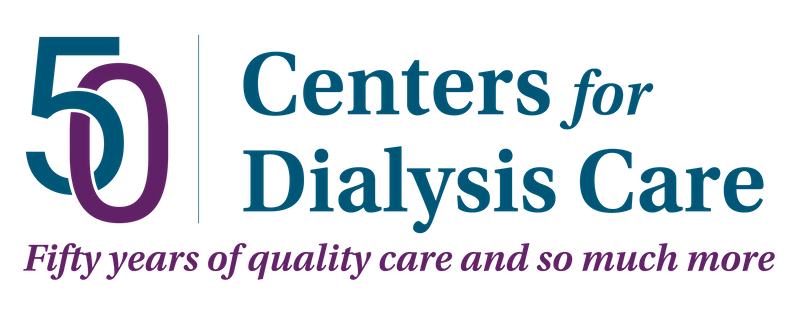Your Diet
Why is a renal diet necessary? The reason many people on dialysis need to follow a special diet is to keep the chemicals in their blood at safe levels in-between treatments, and to help keep their bodies strong and healthy. The changes depend on current eating habits. Be assured that the dietitian develops a plan to continue to enjoy a wide variety of foods, restaurant dining, family picnics and holiday meals. The nutrition department helps to understand individual diet needs while maintaining usual food intake as much as possible.
Most people on dialysis need to measure their intake of fluid.
One of the things to consider is how much fluid to drink every day. Drinking too much water and other liquids may cause dangerous overloaded of fluid. Dietitians determine the safe amount of fluids to drink to avoid this from happening. Each person is different. Eating too much salt (sodium) causes thirst, making it more difficult to control fluid intake and blood pressure. We teach many ways to reduce sodium intake.
Eating enough protein is very important to maintain good health.
People on dialysis need to eat more protein than people not on dialysis. It might be necessary to increase high-protein foods. Eating enough protein helps to fight infections and avoid some of the problems that may lead to hospitalization. Protein is found in meat, poultry, and eggs for example.
Controlling phosphorus prevents bone, heart and organ disease.
Dialysis treatments do not remove phosphorus from the blood as well as kidneys do. Too much phosphorus in the blood can cause painful bone trouble, itchy skin and “hardening” of the heart, blood vessels and other organs. Diet instructions include which foods are high in phosphorus and what portions of these foods are safe to eat. Your doctor also might prescribe a medication called a phosphate binder to take with meals. This helps to absorb some of the phosphorus from the food and eliminates it in your stool.
An abnormal blood potassium can be very dangerous.
It is very important to keep the potassium levels in the blood in normal range. A high or low potassium may cause an irregular heart beat and possibly cause it to stop beating. Monthly blood tests reveal your value at the time the blood is drawn. Eating the right amount of potassium daily prevents dangerously high or low levels. Missing a dialysis treatments or cutting treatment time can cause a high level, but potassium problems are usually caused by food. The dietitian recommends the amount of potassium needed each day and individually helps each patient to eat what is needed. Special consideration is made to fit most foods into each meal plan.
Body weight
You will hear the term dry weight. This is the weight without any extra fluid and when blood pressure is good. Your doctor determines dry weight as part of the dialysis prescription. If you think that you might be losing or gaining weight it is important to inform your nurse or dietitian so your doctor could adjust your dry weight. Your dietitian will determine the right amount of calories needed to meet your daily needs. If body weight gain or loss is best for your general health, adjustments will be made accordingly.
Please ask the nutrition department if you would like a booklet about your diet, help with recipe ideas or meal planning, or handouts on any of the subjects mentioned above. The nutrition department will work together with you, your family, your doctor, and the nurses and social workers here at CDC. If you are in the hospital, in a nursing home, have aides who cook for you, or have another member of your family who does most of the meal preparation at home, these care takers will also be instructed on your diet needs.
Additional information may be obtained from the following web addresses:
www.aakp.org
www.kidneyschool.org
www.kidneypatientnews.org
www.kidney.org/professionals/CRN/cookbooks.cfm
www.kidney-cookbook.com
